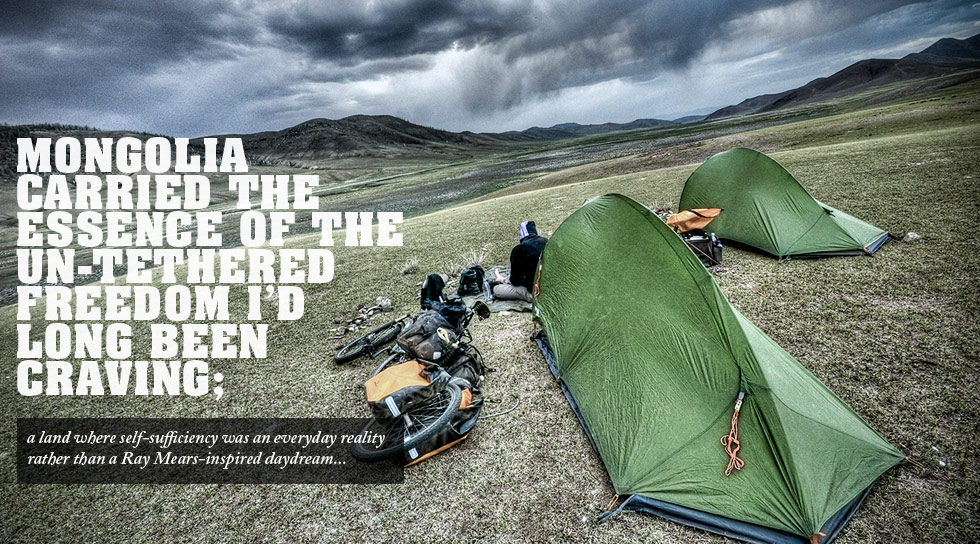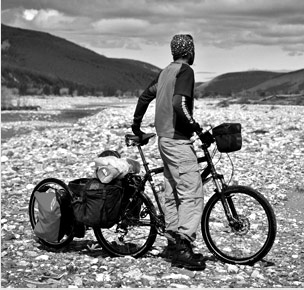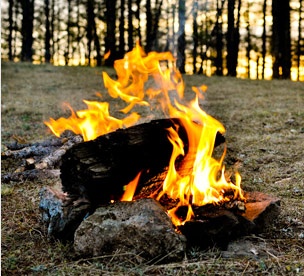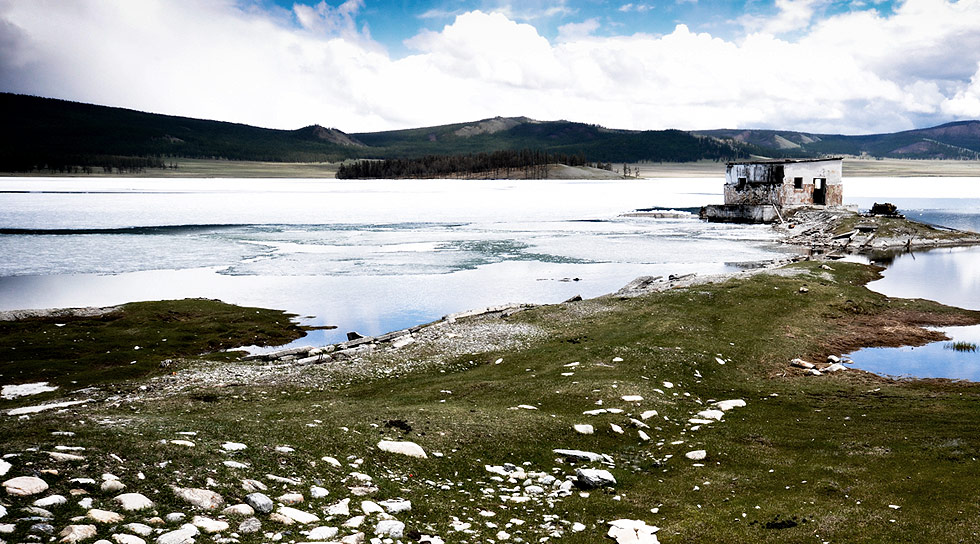It was on the sixth day after leaving Hatgal that the trail petered out. In its place, a tangle of tiny channels began to eat its way westwards down a long valley floor, paved by fist-sized, weather-rounded stones. On either side of the river basin rose steep, jagged walls of rock enthusiastically smothered in green by the spring’s new growth of larch and pine. A whopping green trout flashed past beneath the clear waters that trickled and filtered down from the lofty whitewashed crags.
But for all its unspoiled splendour, the landscape was accompanied by no soaring Hollywood overture, no epic camera-swoop across the path of a silhouetted hero. All lay still and silent. This was the kind of wilderness that turned a man into a tiny speck, his unseen travails rendered vain and pointless. There was no romance in the thought of spending days passing amongst these pristine peaks. Like much of so-called adventure travel, it was simply a job that had to be done. Smiles and satisfaction would come later.
Mongolia carried the essence of the un-tethered freedom I’d long been craving; a land where self-sufficiency was an everyday reality rather than a Ray Mears-inspired daydream, where paved roads were a whisper of the extravagant pampering into which the rest of the world had fallen, where the very environment had the power to make or break a generation. Fantasies aside, what eventually let me there was the prospect of another set of preconceptions lying shattered by the roadside. Months alone on the road had taught me that this was the only expectation worth having.
I’d spent three weeks dragging a rickety cardboard box full of clanking metal across the unimaginably vast expanse of Russia to get to Ulan Bator. To explore this land by bicycle was an inevitability: it was the only way I knew. Soviet sleeper trains were the ideal opportunity to plough through a few books and keep company with the wagon’s other occupants. It took twenty times longer than a flight, and never once seemed a waste of time.




















